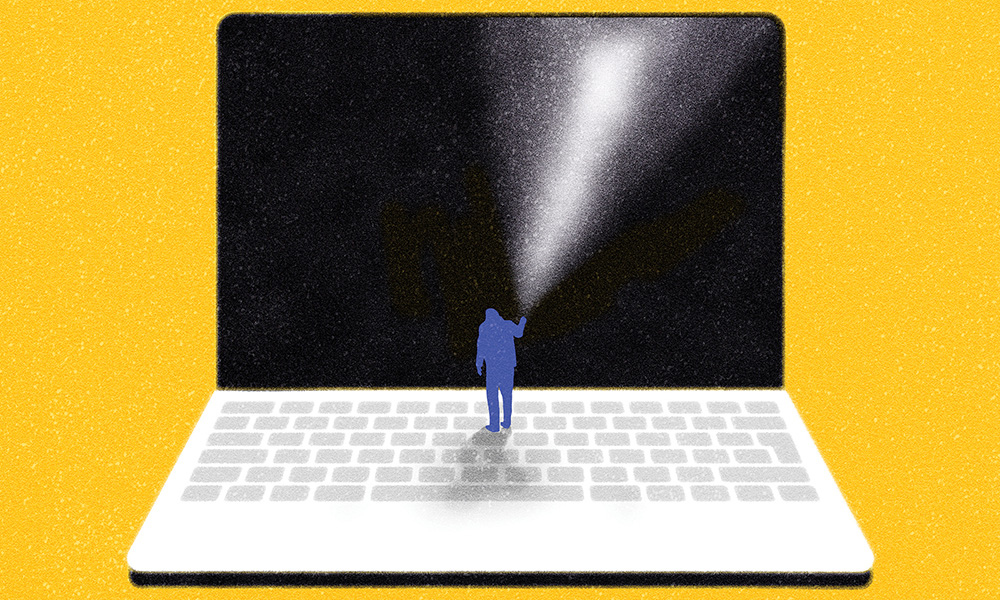What’s the problem with the web? Hasn’t it allowed us to connect to others and been a force for freedom and democracy around the globe?
The commonsensical response is exactly what you just said: Look at all the amazing things it has brought into our world! But I think that any technology has to be analyzed from a dialectical perspective: What are the benefits it brings to our lives, and what does it take away?
Being part of a network almost always brings benefits of all kinds. At the same time, we have to agree to the standards and conventions by which the network operates. And that requires suppressing or giving up certain aspects of my (our) life.
What does it mean, for example, for the English language to emerge as the global lingua franca in a multilingual world? English brings access, upward mobility, prosperity. What is lost, however, is our relationship to our mother tongues.
It’s an interesting paradox: We do need common conventions. But when you accept that, you bargain away some aspects of your freedom and control.
So who—or what—is pulling the strings of the web?
That’s a difficult question to ask, because the definition of a network is that it is a relationship of multiple nodes, and every node is equal to every other node. Where is the center? If there is no center, who is in control?
I argue that the pre-existing asymmetries, inequalities, and relationships of power that existed in the pre-digital world have mapped themselves onto the web. We do still have global hubs of power—corporations, state institutions, digital platforms—but they are masked behind this network.
But how do they continue to exert power? When I go online, aren’t I free to make my own choices and decisions?
“Power now plays this interesting game where it meets us halfway: It gives us some gratification, but it also channels our behavior, our thinking, our creativity”
Power now plays this interesting game where it meets us halfway: It gives us some gratification, but it also channels our behavior, our thinking, our creativity.
That’s effective because we walk away thinking, “Oh, I actually got to do something that I wanted to do.”
We don’t think of the ways in which being on Facebook shapes what we do on it. I believe I’m writing what I want to write; I forget that I’m writing what I’m writing because of invisible and visible elements such as what the Facebook algorithm is showing me and what the Facebook design allows me to do and does not allow me to do.
The drop-down menus, the sequences of choices—all of those use decades of research in social psychology to give us what will make us happy. The rule is that you will get to do what you want to do, but the platform will nudge you towards behaving in a certain way, and you won’t know it.
So the “how” lies in the visible and invisible ways in which online platforms assert power: through sanctions and seductions, rewards and penalties. We are prey walking into this well-laid trap without knowing that the joy and the reward is a part of the bait.
You argue that this is about corporations encouraging us to share our personal data so they can monetize it. That makes Big Tech’s efforts to connect people in the developing world to the web for free look like a form of digital colonialism. Instead of mining Africa and Asia for minerals, companies like Facebook and Microsoft are extracting data.
The coverage of these schemes presents them as generous charitable exercises that will take us to cyber-utopia. But these companies get a lot out of it.
We know Facebook as a social network, but it is also an internet service provider in large parts of the world. It offers Facebook Basics, which is a free limited version of the internet, in close to 65 countries. This is not philanthropic or altruistic or charitable: It’s a way to expand the network so that advertisers will also come onto the platform, and they’re the ones who pay for everyone’s lunch.
You say that your goal is to improve the web. How do we do that?
The challenge with any activism about making the internet a better place is that a lot of it is opaque, and a lot of us don’t have the tools to understand it. A large section of the population is not trained in understanding code and the nitty-gritty of algorithms. But I do think there is growing awareness of the damaging effects of these infrastructures of control. Popular opinion is beginning to tilt away from corporations towards more privacy and empowerment of users. And corporations are aware of this: Google just stopped tracking users through cookies.
But I don’t think we can leave this to the corporations. There should be action at the level of government and civil society. I see hope in these movements for algorithmic justice calling for more openness and stakeholder participation. Should there be a publicly funded search engine, for example, whose algorithms we get to vote on? It probably wouldn’t beat Google, but we would know that it wasn’t contaminated by corporate interests or the profit motive.


